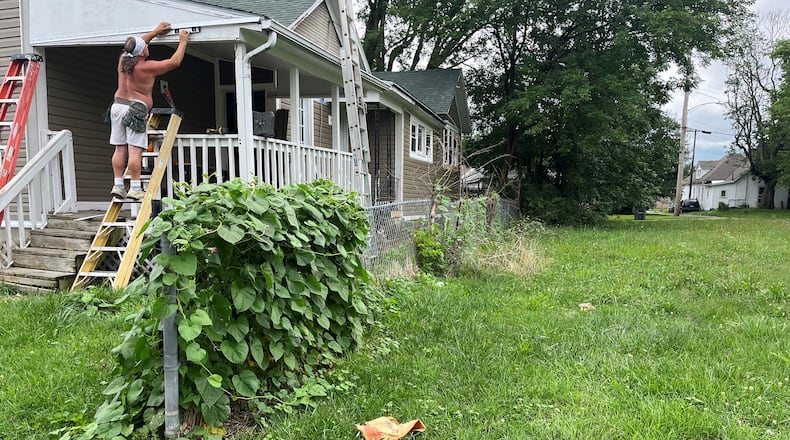“The last thing we would want to do is give land to someone who is not taking care of the property they own today,” said Todd Kinskey, Dayton’s director of planning, neighborhoods and development.
Dayton owns lots of properties, and some are crucial to city operations and services, such as those that are home to City Hall, fire stations, police headquarters, water facilities, parks and recreation centers.
But Dayton also owns many vacant residential lots, including some the city acquired to demolish the structures on them.
A new pilot program will soon launch that will begin with the sale of 18 vacant, city-owned, residential lots.
A list of properties will be available online on the city’s website, and properties will be available to buy on GovDeals.com. Listings will be up for 30 days.
These residential lots could support new homes or other new structures, or they could be used for yard extensions or personal or community gardens, officials said.
Vacant residential lots will be priced based on the Montgomery County Auditor’s value, as well as administrative costs, city officials said.
The city will not accept any amounts lower than the starting bid. But the city may make adjustments later on.
Dayton also plans to sell for $200 some vacant residential lots that are unsuitable for new home construction because they are too small or because they have other issues, Kinskey said.
These properties will not be advertised on GovDeals.
The city will sell them directly to interested parties, and adjacent property owners will get first crack and will have the first right for refusal, Kinskey said.
Too often, properties that go up for public sale wind up in the possession of irresponsible owners, some of them LLCs and people who live out-of-state, Kinskey said.
The city can’t stop these people and groups from trying to purchase parcels, but it will require buyers to attest and certify they are up-to-date on all property taxes, and they must be current on all city bills, Kinskey said.
Buyers also will have to confirm they have no outstanding code violations on properties they own and they must be in “good standing” if in the past they participated in the now-defunct Lot Links program.
The city will ask potential buyers to share information about what properties they own, the conditions of their properties and other information.
“The goal for the city is not revenue generation — the goal for us is to get these into responsible owners’ hands, and, quite frankly, lessen the burden we have for maintenance,” Kinskey said.
The city mows and maintains about 6,000 vacant lots, said Fred Stovall, Dayton’s public works director.
City staff will ask for documentation from potential buyers at the end of the bidding period.
They will have 10 days to produce information related to reporting and verification requirements. The city will not ask for this information for unbuildable vacant lots.
Kinskey also said the city will try to talk to neighborhood representatives first to vet potential surplus vacant residential properties before moving forward with trying to sell them.
Jeff Speaks, with Speaks Renovations, owns a home on the 200 block of Hawker Street in the Twin Towers neighborhood that he is fixing up.
The city owns two vacant lots just north of his property, and Speaks said in the past he’s thought about trying to buy the parcel next to his and incorporate it into his lot.
Speaks said he might be interested in acquiring the properties if the city put them up for sale and he could get a good price.
“I’d like to see them sold, and I’d like to see them sold to me dirt cheap,” he said. “I’d like to see something done to them to enhance the neighborhood.”
The pilot program will last through the rest of the year, and its success will depend on how many properties the city manages to sell, officials said.
Additional batches of properties will become available for sale in the future, and the city has a list of more than 200 parties that are interested in city-owned lots, officials said.
The program hopefully will help address housing accountability issues, especially with out-of-town owners who have shown no commitment to helping improve quality of life in the city, said Dayton Mayor Jeffrey Mims Jr.
Many people will be excited about this pilot program, but there is a digital divide in the community and some residents may not have the ability to access GovDeals to try to bid on properties, said Dayton Commissioner Shenise Turner-Sloss.
She said she would like the city to explore options to help people on the wrong side of the digital divide review and possibly bid on these properties.
Turner-Sloss also said the county auditor’s valuation often is not a true reflection of a parcel’s value.
Some listed values are much higher than what the properties could realistically fetch on the market.
About the Author



